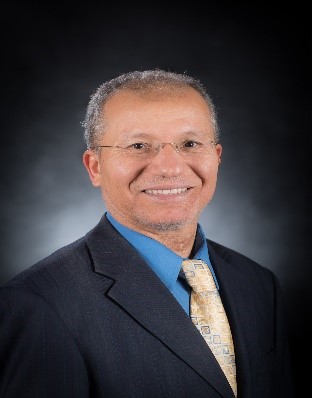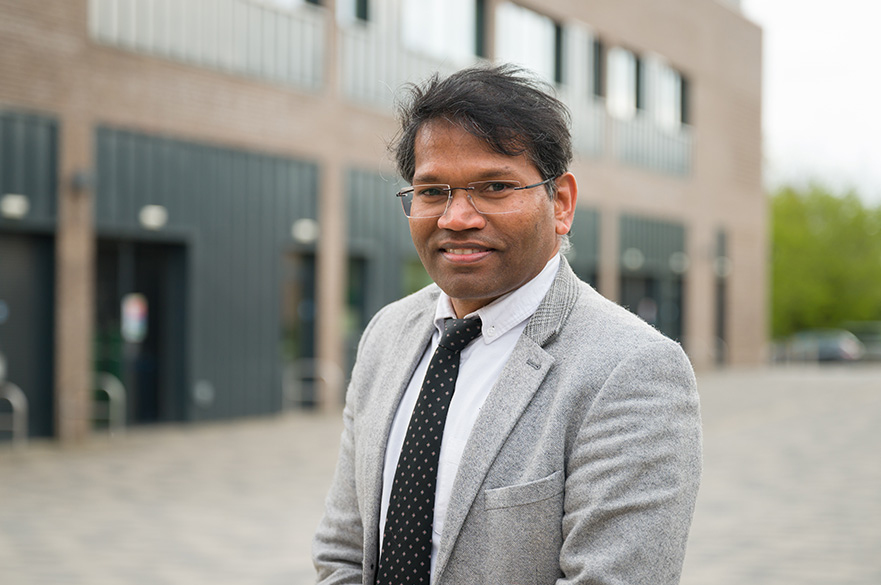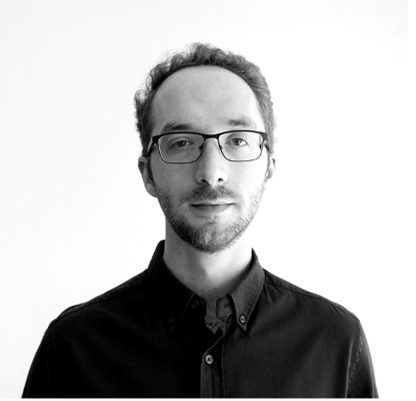
TU Wien, Austria
Biography:
Schahram Dustdar is a Full Professor of Computer Science at the TU Wien, heading the Research Division of Distributed Systems, Austria. He holds several honorary positions at the University of California (USC) Los Angeles; Monash University in Melbourne; Nanjing University of Science and Technology; Shanghai University, Macquarie University in Sydney; and University Pompeu Fabra, Barcelona, Spain. From Dec 2016 until Jan 2017, he was a Visiting Professor at the University of Sevilla, Spain, and from January until June 2017, he was a Visiting Professor at UC Berkeley, USA. From 1999 to 2007, he worked as the co-founder and chief scientist of Caramba Labs Software AG in Vienna (acquired by Project NetWorld AG), a venture capital co-funded software company focused on software for collaborative processes in teams. He is the co-founder of edorer.com (an EdTech company based in the US) and co-founder and chief scientist of Sinoaus.net, a Nanjing, China-based R&D organization focusing on IoT and Edge Intelligence. He serves as Editor-in-Chief of Computing (Springer). Dustdar is a recipient of multiple awards: IEEE TCSVC Outstanding Leadership Award (2018), IEEE TCSC Award for Excellence in Scalable Computing (2019), ACM Distinguished Scientist (2009), ACM Distinguished Speaker (2021), IBM Faculty Award (2012). He is an elected member of the Academia Europaea: The Academy of Europe, as well as an IEEE Fellow(2016) and an Asia-Pacific Artificial Intelligence Association (AAIA) Fellow (2021) and the AAIA president (since 2021).

IEEE Fellow, Professor, Machine Learning Department, MBZUAI, UAE
Biography:
Mohsen Guizani (Fellow, IEEE) received the BS (with distinction), MS and PhD degrees in Electrical and Computer engineering from Syracuse University, Syracuse, NY, USA in 1985, 1987 and 1990, respectively. He is currently a Professor of Machine Learning at the Mohamed Bin Zayed University of Artificial Intelligence (MBZUAI), Abu Dhabi, UAE. Previously, he worked in different institutions in the USA. His research interests include applied machine learning and artificial intelligence, smart city, Internet of Things (IoT), intelligent autonomous systems, and cybersecurity. He became an IEEE Fellow in 2009 and was listed as a Clarivate Analytics Highly Cited Researcher in Computer Science in 2019, 2020, 2021 and 2022. Dr. Guizani has won several research awards including the “2015 IEEE Communications Society Best Survey Paper Award”, the Best ComSoc Journal Paper Award in 2021 as well 5 Best Paper Awards from ICC and Globecom Conferences. He is the author of 11 books, more than 1000 publications and several US patents. He is also the recipient of the 2017 IEEE Communications Society Wireless Technical Committee (WTC) Recognition Award, the 2018 AdHoc Technical Committee Recognition Award, and the 2019 IEEE Communications and Information Security Technical Recognition (CISTC) Award. He served as the Editor-in-Chief of IEEE Network and is currently serving on the Editorial Boards of many IEEE Transactions and Magazines. He was the Chair of the IEEE Communications Society Wireless Technical Committee and the Chair of the TAOS Technical Committee. He served as the IEEE Computer Society Distinguished Speaker and is currently the IEEE ComSoc Distinguished Lecturer.

Nvidia Flare, USA
Biography:
Ziyue Xu is a Senior Scientist at NVIDIA, before which he was a Staff Scientist and Lab Manager at National Institutes of Health, USA. His research interests lie in the area of image analysis and computer vision with applications in biomedical imaging. He has been working on collaborative medical AI development over the years along with fellow researchers and clinicians. He is an IEEE Senior Member, Area Chair for major conferences, and Associate Editor for several journals including IEEE Transactions of Medical Imaging, and International Journal of Computer Vision.

KAUST, KSA
Biography:
Peter Richtárik is a professor of Computer Science at the King Abdullah University of Science and Technology (KAUST), Saudi Arabia, where he leads the Optimization and Machine Learning Lab. His research interests lie at the intersection of mathematics, computer science, machine learning, optimization, numerical linear algebra, and high-performance computing. Through his work on randomized and distributed optimization algorithms, he has contributed to the foundations of machine learning, optimization and randomized numerical linear algebra. He is one of the original developers of Federated Learning. Prof Richtárik’s works attracted international awards, including a Best Paper Award at the NeurIPS 2020 Workshop on Scalability, Privacy, and Security in Federated Learning, Distinguished Speaker Award at the 2019 International Conference on Continuous Optimization, SIAM SIGEST Best Paper Award, and the IMA Leslie Fox Prize (three times). Several of his works are among the most read papers published by the SIAM Journal on Optimization and the SIAM Journal on Matrix Analysis and Applications. Prof Richtárik serves as an Area Chair for leading machine learning conferences, including NeurIPS, ICML and ICLR, and is an Action Editor of JMLR, and Associate Editor of Numerische Mathematik and Optimization Methods and Software. In the past, he served as an Action Editor of TMLR and an Area Editor of JOTA.

Nottingham Trent University (NTU), UK.
Abstract
Cyber security risks are significantly growing for in new emerging networks such connected & autonomous vehicles, EV charging networks, and Drone communication networks. Our cyber security research group at Nottingham Trent University is working on addressing these emerging cyber risks as a national critical infrastructure. In this talk on “Cyber Security and Network Systems (CyberNets) for enabling connected vehicles and EV charging”, I will present my some on going projects at Nottingham Trent University, and some of our existing research outputs. Our research is funded by industries in the UK including JMVL Ltd, Cobac Security, Methodica Technologies, and UK govt research funding agencies including Innovate UK. The talk is divided into two parts. In the 1st part of the talk, I will present our on-going projects on cyber security for connected and autonomous vehicle, EV charging security, drone communication security, and visible light communication security. In the 2nd part, I will talk about some recent research outputs in the connected vehicles and EV charging cyber security related research.
Biography:Omprakash Kaiwartya (https://omprakash.co.uk/) is currently working as a Senior Lecturer and PhD Re- search Coordinator at the Department of Computer Science, Nottingham Trent University (NTU), UK. Previously, He was a Research Associate at the Northumbria University, Newcastle, UK, in 2017 and a Postdoctoral Research Fellow at the Universiti Teknologi Malaysia (UTM) in 2016. He received his Ph.D. degree in Computer Science from Jawaharlal Nehru University, New Delhi, India, in 2015. He is an expert in ‘Network Communication and Cyber Security’ working with industries to solve emerging network challenges in Connected Vehicles, EV Charging, and the Internet of Things. He is an Internationally well-known researcher with 150+ articles including 40+ in high impact IEEE Transactions/IEEE Journals with 6000+ citations (h-index 43). He is Associate Editor/Guest Editor of reputed SCI Journals including IEEE IoT, IET Intelligent Transport Systems, EURASIP Journal on Wireless Communication and Networking, MDPI Sensors, and Electronics, Wireless Communications and Mobile Computing Hindawi. Ad-Hoc and Sensor Wireless Networks, and Transactions on Internet and Information Systems. He is leading several projects as PI worth £500K at NTU. For example, £250K “Drive with Confidence” project(https://www.ntu.ac.uk/research/groups-and-centres/projects/drive-with-confidence/_nocache) funded by NTU’s Capital Bid and Impact Accelerator Fund, and Innovate UK, £110K “IoT enabled Secure Air Quality Monitoring System” project funded by industry partner Cobac Security project (https://omprakash.co.uk/projects/), and £105K “Cyber Security for EV Charging Network” project funded by industry partner JMVL Ltd, and £120K “Open RAN for Next-Gen 6G Communications Using AI-based Quantum Computing (TITIAN)”. Funded by UKIERI.

University of Cambridge and Flower Labs, UK
Biography:
Nicholas Lane is a full Professor in the department of Computer Science and Technology at the University of Cambridge, where I lead the Cambridge Machine Learning Systems lab (CaMLSys). Our mission at CaMLSys is to invent the next-generation of breakthrough ML-centric systems. I am also a Fellow of St. John’s College. Alongside my academic roles, I am the co-founder and Chief Scientific Officer of Flower Labs, a venture-backed AI company (YCW23) behind the Flower federated learning framework. Flower Labs seeks to enable an AI future that is collaborative, open and distributed. Until March 2023, I held the position of Lab Director at Samsung AI in Cambridge. This 50-person AI lab has an agenda of broadly advancing ML, and in addition to leading the lab — I personally directed teams focused on distributed and on-device forms of learning. Earlier in my career, I was an Associate Professor in the Computer Science department at the University of Oxford. At Oxford, I was a member of the Cyber-Physical Systems group, taught machine learning on the Professional Masters Program and was a Fellow of Kellogg College. Prior to Oxford, I held dual academic and industrial appointments as a Senior Lecturer in the Computer Science department at University College London (UCL), and as a Principal Scientist at Nokia Bell Labs. At UCL I was part of the Digital Health Institute and UCL Interaction Center, while at the Bell Labs I was part of the Pervasive Systems department based in Cambridge. Before moving to England, I spent four years at Microsoft Research based in Beijing. There I was a Lead Researcher within the Mobile and Sensing Systems group (MASS). In March 2011, I received a Ph.D. from Dartmouth College. I also hold an M.Eng from Cornell University and a BSc.(Hons) from the University of Waikato.
Industry Tutorials

Leading Research Scientist, FlowerLabs, UK
Biography:
Javier works on the core framework and develops the Flower Simulation Engine, which allows to run Federated Learning workloads in a resource-aware manner and scale these to thousands of active clients. Javier's interests lie in the intersection of Machine Learning and Systems and, more concretely, running on-device ML workloads, a key component in Federated Learning. Javier got his PhD in Computer Science from the University of Oxford in 2021. Before joining Flower Labs, he worked as a research scientist at Samsung AI (Cambridge, UK).

Uppsala University, Scaleout Systems, Sweden
Biography:
Salman is the co-founder of Scaleout; the FEDn federated learning framework. He received a Ph.D. degree in scientific computing from Uppsala University, Sweden. He is currently an Associate Professor with the Department of Information Technology, Uppsala University, where he is also the Co-Founder of the Integrative Scalable Computing Laboratory (ISCL). His research interests include data management, scalability, and distributed computing infrastructure performance.


